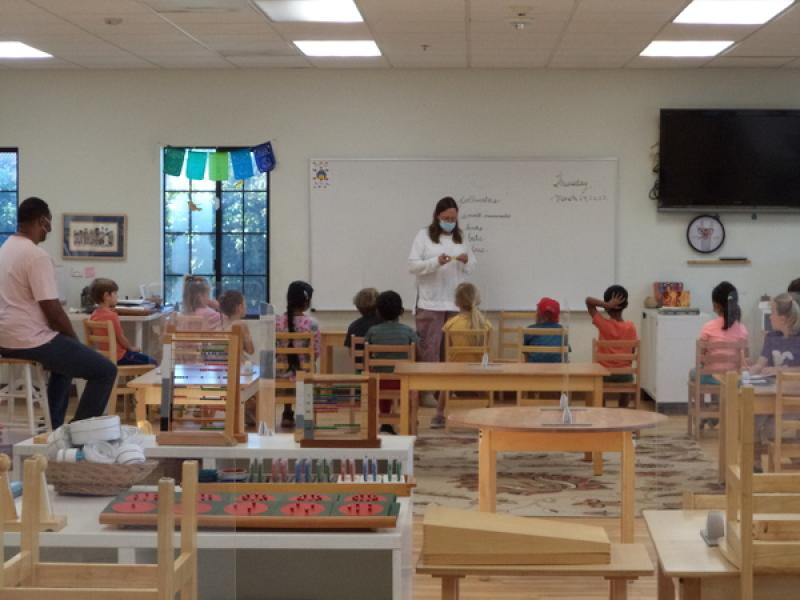One tool Montessori teachers use to develop students' social skills is 'noticing.' By using verbal cues, teachers can use their skill of noticing to encourage students to make intelligent choices due to noting a behavior they want to repeat.
"This skill is part of the foundation to the successful implementation of conscious discipline," writes Jenny Spencer, Author and Certified Instructor of Conscious Discipline®. "It helps us…build relationships as we encourage helpfulness in our students."
For example, teachers "promise children that we will keep them safe. We must notice their helpfulness to encourage them to be successful at this job," says Spencer.
Four Ways to Notice Children's Actions
Here are four simple steps to help you notice a child's helpfulness:
- address the child by their first name
- detail precisely what the child did that was helpful
- help the child understand how their behavior helped another
- complete the interaction with 'that was helpful' or 'that was thoughtful.'
What Noticing Does
Teachers and parents can set an excellent example for children by promoting positive behavior. How we say something can change a child's self-valuation from 'I'll never be good enough' to 'I'll be the best I can be.'
"Noticing directs attention to see what's happening right now," says Dr. Becky A. Bailey, award-winning Author, renowned teacher, internationally recognized expert in childhood education and developmental psychology, and Founder of Conscious Discipline®. "It adds a verbal element to non-verbal behavior and without judgment. The brain is always judging 'good' and 'bad' behavior. Removing that judgment by being mindful or using specific verbal descriptions or observational analysis pulls us up because we make them (students) conscious."
"Essentially, we state the behavior we want to see. Children and teens love it when their behavior is appreciated and affirmed. As a result, positive choices discourage and avoid disruptive behavior," Dr. Bailey said.
The Lifetime Montessori Edge
Blending positive behavior and conscious discipline helps build what Dr. Maria Montessori called 'the whole child.' At Lifetime Montessori School, we teach 200 toddler, primary, Kindergarten, and elementary students by respecting them for what they are while introducing them to academic, social, and emotional skills that will help them every day as they mature adolescents to adults. Indeed, the skill of noticing is one of those skills.


